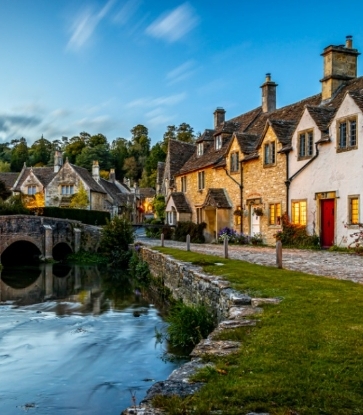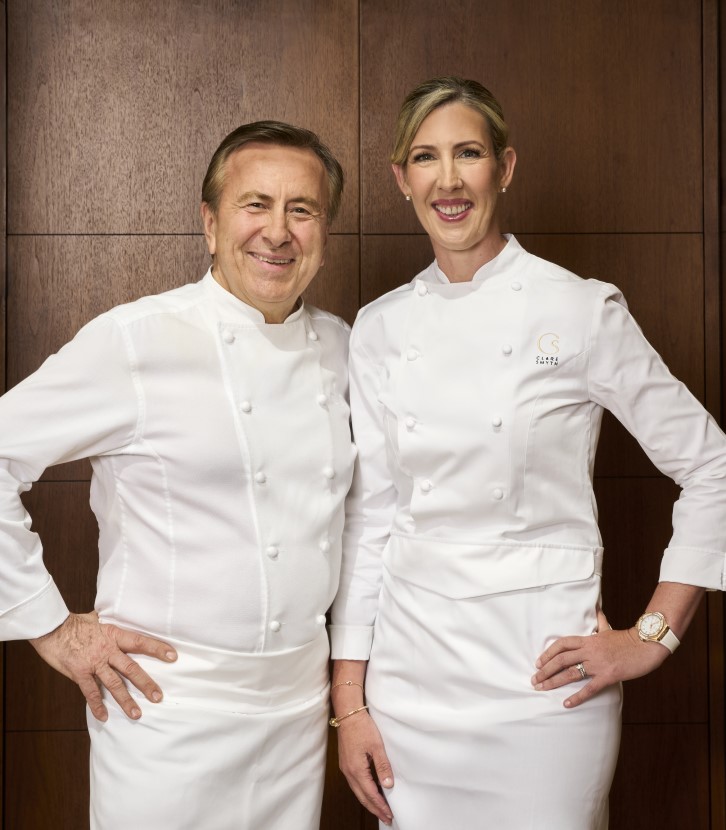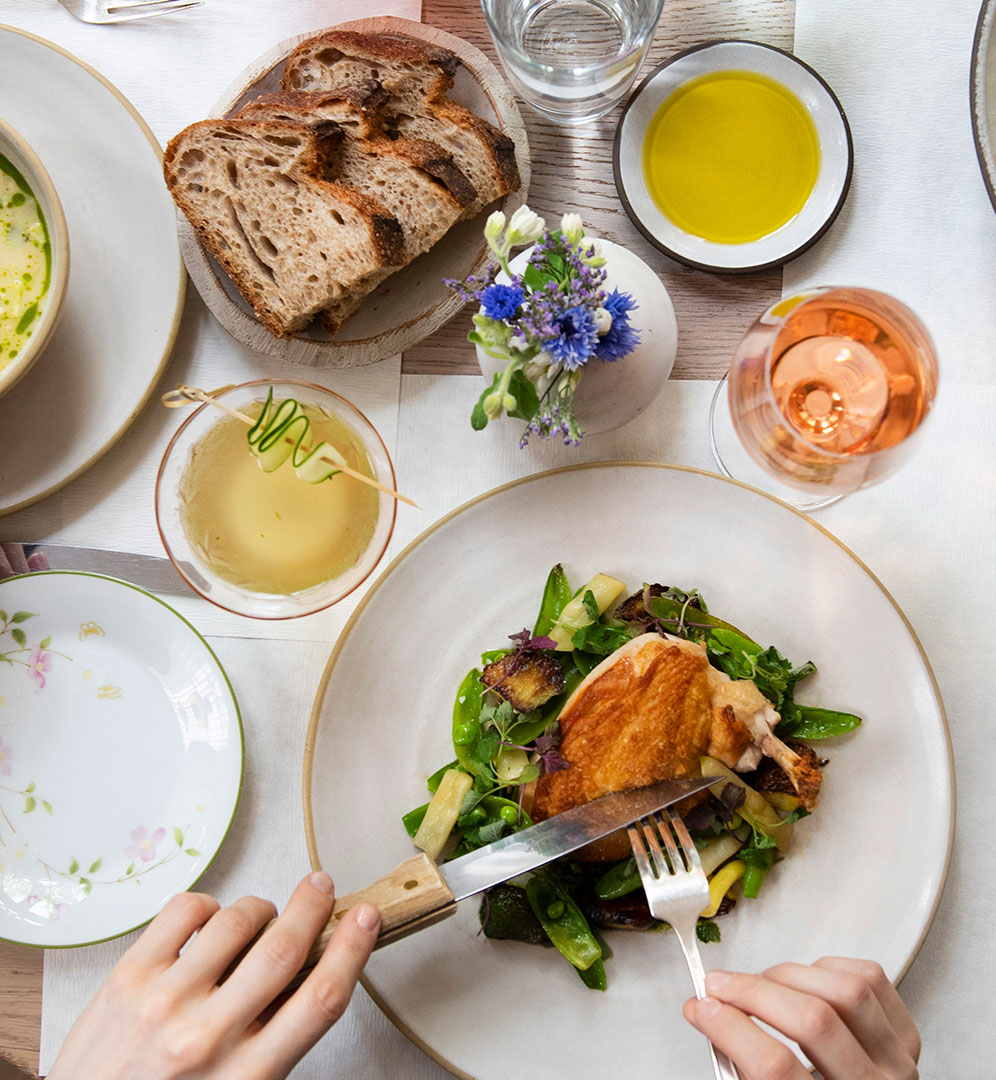The MICHELIN Green Star is awarded to restaurants who are at the forefront of the industry in sustainability. From sustainable cocktails to sustainable dining being a way of life in Baja California, these restaurants prove that being green can be just as tasty as their counterparts.
That’s why, every week, whether it's a restaurant that’s trained 2,000 employees to be more sustainable or a restaurant with a garden in the heart of the city, we will be highlighting a Green Star restaurant across the United States to share their sustainability story and why it means so much to them.
Over a decade ago, Chef Hosea Rosenberg opened Blackbelly Market to spotlight the cuisine of Colorado. With the state having some of the best lamb in the world, Rosenberg named his restaurant after his favorite breed of sheep.
To carve the best meat, the restaurant has an in-house butchery led by Kelly Kawachi, which focuses on using the whole animal, incorporating techniques like curing and dry aging. Other kitchen ingredients are hyper seasonal, supporting whatever the local organic farmers and ranchers have available.
Before diving in, if you want to check out our Inspectors' take, click here.

What is your philosophy on sustainability?
We do everything we can to make the world a little bit better place than before we started. It's all about who we source from, what kind of packaging we allow, and the practices that we have with composting.We are very much focused on sustainability and regenerative agriculture. We interview the people that sell us the food. If we feel like they're aligned with our ethos, then then we're much more likely to start doing business with them.
We use our whole animal; every last bit of the animal is used in something. We have dog treats on the counter, which are dehydrated pieces of skin that we take from some of the animals. We have stocks and bone broths. We do a lot of curing, and we use the little bits for all sorts of menu items.
We try to be as close to zero waste as we can. We've gotten it down to a minimum over the years, and we feel very proud of our practices and the relationships that we have with the people that we buy from.

Tell us about your most impactful sustainable initiative.
We know the ranchers by name. We know exactly where the animals live, how they're treated, what they eat. The Buckner family raised the lamb, and we know exactly what their practices are. You could ride your bike from the restaurant to their farm, and we try to honor the animals the way they were raised.What’s the most sustainable dish on the menu?
We've gotten much deeper into fermentation. We have this dish that’s essentially a crudité board. It’s local raw vegetables from our friend Mark at Esoterra Culinary Garden, just up the road. He’s a trained chef-farmer. He uses amazing regenerative practices on his farm. He's a no till farm. Everything's certified organic. A lot of heirloom varietals. He has a lot of Row 7 Seeds developed by Dan Barber. He grows hundreds of varieties of flowers to make your food beautiful, and all this different produce.When you get the plate, it's whatever's in season: carrots, cucumbers, tomatoes. Right now, we're getting into more brassicas, more hearty leafy greens. The dip in the center is a fermented corn dip. We take local organic Colorado corn and soybeans, make this ferment, and then it gets whipped with locally raised dairy cream.

What is the biggest challenge in becoming more sustainable?
Price. Restaurants operate on razor-thin margins. It's really hard to make money, and it's very tempting to buy cheaper carrots or parsley from a big box supplier. A lot of restaurants claim to be farm to table, but they maybe only buy one or two things, and the rest of it is commercial.We will spend the money and make less of a profit to do the right thing. At the end of the day, I can go home and know that I'm not lying to anybody, and I'm not lying to myself. We have to charge a little bit more, but if the food's good and people understand what we've done to make that food happen, it works out.
Colorado has some pretty cold winters. How do you incorporate seasonality on your menu?
In the winter, we do a lot of preservation. Curing, fermenting, freezing, pickling. In January, we have a lot of preserved produce, and we do have a few farmers like Mark at Esoterra who have greenhouses, and they are able to bring us winter greens and root vegetables. We also have a pretty abundant pasta program now and bread program, and we're using all Colorado grains in our breads. And, of course, all of our cured meats, because those don't have a season.
What can other restaurants do to be more environmentally conscious?
The better the source, the better the ingredients, the better the outcome. If you can buy the best possible products, you will end up with a better end result. You still have to make good food, but if you start with these really amazing products, and you can showcase these farmers, the customers look for that.What’s one thing everyone can do to be more environmentally friendly in their daily lives?
Stop using plastic. The less plastic, the better. To me, that's the number one polluter of this planet: single-use plastics. Use a water bottle and don't buy single-use plastic water bottles. Making sure that the people that deliver your food are going as minimal as possible with plastics.What do you view as the future of sustainability in gastronomy?
Microclimates. Buying products from local, organic suppliers. If we can get the majority of our products from within a very small circumference from the restaurant, then we're doing a major impact, trying to keep planes and 18-wheelers from burning gas to get the food from California to Colorado.Hero image: Blackbelly Market / Chef Hosea Rosenberg at the Farm
Thumb image: Blackbelly Market / Chef Hosea Rosenberg Cooking at Blackbelly Market





















